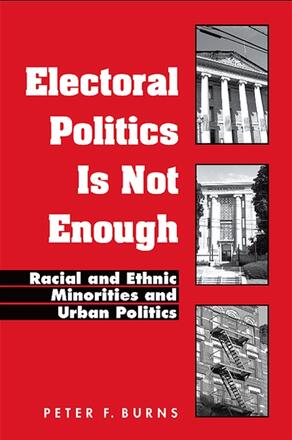
Electoral Politics Is Not Enough
Racial and Ethnic Minorities and Urban Politics
Alternative formats available from:
Examines how and why government leaders understand and respond to African Americans and Latinos in northeastern cities with strong political traditions.
Description
Focusing on four medium-sized northeastern cities with strong political traditions, Electoral Politics Is Not Enough analyzes conditions under which white leaders respond to and understand minority interests. Peter F. Burns argues that conventional explanations, including the size of the minority electorate, the socioeconomic status of the citizenry, and the percentage of minority elected officials do not account for variations in white leaders' understanding of and receptiveness toward African American and Latino interests. Drawing upon interviews with more than 200 white and minority local leaders, and through analysis of local education and public safety policies, he finds that unconventional channels, namely neighborhood groups and community-based organizations, strongly influence the representation of minority interests.
Peter F. Burns is Associate Professor of Political Science at Loyola University New Orleans.